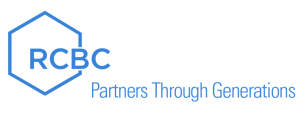Cooperation in Achieving Sustainable Growth
 Juan Gabriel Rodriguez Tomas IV, Chief Risk Officer, Risk Management Group reported on recent activities in implementing regulatory framework for Sustainable Finance and how it is addressing new and emerging challenges in achieving the UN Sustainable Development Goals (SDGs).
Juan Gabriel Rodriguez Tomas IV, Chief Risk Officer, Risk Management Group reported on recent activities in implementing regulatory framework for Sustainable Finance and how it is addressing new and emerging challenges in achieving the UN Sustainable Development Goals (SDGs).
Paper Objective
To provide updates on RCBC’s implementation of the regulatory Sustainable Finance Framework and relate these to emerging challenges in achieving the UN Sustainable Development Goals (SDGs).
Introduction:
The Philippine banking system is governed and regulated by the Bangko Sentral ng Pilipinas (the Philippine Central Bank or BSP). In April 2020, the BSP issued Circular No. 1085, referred to as the Sustainable Finance Framework.
The Circular requires banks to integrate sustainability principles, including those covering environmental and social (E&S) risk areas, in their corporate governance framework, risk management systems, and strategic objectives; it provides a three-year transition period for banks to be fully compliant.
As a follow-through directive, the BSP issued Circular 1128 referred to as the Environmental and Social Risk Management Framework, providing guidelines for banks to integrate E&S risks into the risk management frameworks, particularly with regard to credit and operational risks.
The Circular was issued in October last year and includes provisions on establishing E&S goals or targets and monitoring a bank’s own progress on achieving these goals.
Activities to help address Emerging Challenges in Achieving the UN SDGs – RCBC’s Sustainability Journey:
(1) Action against Climate Change: Under BSP Circular 1085 and 1128, the BSP acknowledges that climate change could pose “significant and protracted implications on the bank’s operations and financial interest.” Climate risk can adversely affect financial institutions mainly through their lending activities as both physical risk and transition risk can weaken borrowers’ ability to repay loans.
- 2021 and 2022 Reports of the Secretary-General to the UN Economic and Social Council:
(a) The 2021 Report emphasizes the need for urgent attention to UN SDG 13 (Climate Action) as it “puts the achievement of many SDGs at risk”:“Despite setbacks from COVID-19, preliminary data show global greenhouse gas emissions increased in 2020. The past six years, 2015–2020, are likely to be the six warmest on record. Climate change puts the achievement of many SDGs at risk. In order to limit warming to 1.5°C above pre-industrial levels as called for in the Paris Agreement, global efforts would need to reach net zero CO2 emissions globally around 2050.”The report also indicates that the achievement of UN SDG 7 (Affordable and Clean Energy) is essential in attaining UN SDG 13 or pursuing the fight against climate change:“Despite significant progress over the last decade on improving access to electricity, increasing the use of renewable energy in the electricity sectors, and improving energy efficiency, the world is still short of achieving affordable, reliable, sustainable and modern energy for all. Clean and sustainable energy should be at the heart of the COVID-19 response and fight against climate change.”
(b) The 2022 Report re-emphasized the importance of Climate Action given the following trend:“…Despite the temporary reduction of CO2 emissions in 2020, global energyrelated CO2 emissions are projected to rebound and grow by 4.0% as demand for coal, oil and gas rebounds with the economy in 2021. Based on current national commitments, global emissions are set to increase by almost 14% over the current decade, which could lead to a climate catastrophe unless governments, the private sector and civil society work together to take immediate action…”“To get the SDGs back on track and to keep the 1.5-degree goal alive, we need to capitalize on the opportunity afforded by the recovery to adopt low-carbon, resilient and inclusive development pathways that will reduce carbon emissions…”
(2) Embedding awareness and embracing transparency:
Support for climate action and the UN SDGs can take place only when there is stable foundation in terms of knowledgebuilding, awareness strategy, and commitment to transparency. RCBC hence embarked on the following activities over the past year:
- Launch of Sustainability e-learning program. The Sustainability e-learning program was developed as an annual exercise starting 2021. It serves as the immersion tool that helps RCBC employees, senior management, and Board of Directors understand the Bank’s role and the individual’s responsibility toward his/her community and environment.Climate change was the central theme in the pilot Sustainability elearning, with concepts such as greenhouse gas (GHG) emissions, carbon footprint, and low-carbon economy introduced throughout the material. Its completion by each member of RCBC seeks to promote the value of environmental protection and social responsibility as part of performance evaluation metrics, which is also required by BSP Circular 1085 and 1128.
- Increased visibility to clients and suppliers. Informative Sustainability leaflets were distributed to RCBC’s corporate clients and suppliers in 2021. These were aimed at promoting awareness of the effects of climate change and the need for environmental protection through activities that help reduce GHG emissions / carbon footprint.The materials also provide information on RCBC’s sustainable portfolio and its contribution to the UN SDGs to encourage the integration of sustainable practices into the operations of clients and suppliers. This kind of information dissemination is aligned with the provisions of BSP Circular 1128 enjoining banks to adopt an effective communication strategy to inform external stakeholders of the bank’s E&S strategic objectives and targets.
- Enhanced reporting on sustainable finance. RCBC continued to publish its Annual Sustainability Report (ASR) and Impact Report in compliance with regulatory requirements for publicly-listed companies and the Bank’s Sustainable Finance Framework.As in previous years, the Impact Report was released together with the Impact Report video which highlights the Bank’s commitment in supporting projects that have clear E&S benefits. Both the ASR and Impact Report were published with the theme “Innovations that Deliver” to demonstrate RCBC’s commitment to innovations that create value not only for the Bank’s customers and employees, but for society and the planet as well.Below are the significant information on the Bank’s sustainable portfolio that are contained in both reports and comply with the requirements of BSP Circular 1085 on sustainable finance(1) disclosures:
(a) Since the creation of RCBC’s Sustainable Finance Framework in 2019 until March 2021, RCBC has raised around USD1.1B in green and sustainability bonds. RCBC’s sustainability bonds as of the end of Dec 2021 helped support the Bank’s asset growth. When compared to the asset mix in 2020, RCBC’s sustainable portfolio has moved toward a 70:30 mix in terms of the ratio of green to social portfolio as of end-2021, versus a 60:40 mix in 2020.This is indicative of the Bank’s stronger support for green projects after it declared to no longer fund the construction of new coal power projects starting Dec 2020.
(b) In Feb 2022, RCBC launched the country’s first green time deposit to promote environmental awareness while saving funds. Within the same month, RCBC raised Php14.75B ASEAN Sustainability Bonds in support of the continued growth in the Bank’s sustainable assets.
(c) The Bank’s sustainable portfolio grew from 10% of total loan portfolio in 2020 to 12% as of end-2021, higher than the 7% share of coal exposures. Renewable Energy and Energy Efficiency projects dominate the Bank’s Php67B sustainable portfolio, increasing from 49% of RCBC’s total sustainable portfolio in 2020 to 60% in 2021.
* The Bank has supported around 3 gigawatts (GW) of renewable energy projects (solar, wind, hydro-power and geothermal) since 2012. RCBC intends to reinforce funding support for renewable energy projects by tapping twelve projects with combined capacity of about 1.6 GW in 2022 and 2023.
* RCBC’s Php42B erstwhile investments in coal exposure will taper off and remain in the Bank’s books only until 2031.
The combined benefits of the green and social assets in RCBC’s sustainable portfolio contribute to 11 of the 17 UN SDGs.
(3) Climate Risk Analysis: As climate change is a complex global concern that may significantly affect the financial health of banks, it is important to develop capabilities to understand its impact on a bank’s portfolio.
The June 2022 Climate Risk Report of the Alliance for Green Commercial Banks indicates that scenario-based methods are now commonly used in climate risk measurements for banks’ stress test and sensitivity analysis exercises. As GHG emissions are the main contributors to global warming, the report further notes that carbon emission indicators have also become benchmark measures for transition risk.
The report states: “A higher level of carbon emissions implies a greater vulnerability to changes in regulations, technologies, and preferences, and consequently a higher exposure to transition risk. FIs can employ these indicators to measure their counterparties’ exposure to transition risk and avoid engaging in high emission projects.”
RCBC’s sustainability initiatives, as follows, are aligned with these observed global trends on climate risk analysis for banks:
- In January 2021, RCBC entered into an advisory engagement with the International Finance Corporation (IFC) and 2 Degree Investing Initiative (2DII) for the use of the Paris Agreement Capital Transition Assessment (PACTA) tool and related methodology developed by 2DII.This advisory engagement for RCBC is the first to be conducted by IFC and 2DII in Asia. The results of the PACTA evaluation are based on climate scenarios and will provide an assessment of transition risk that will be reported to the BSP.
- In September 2021, RCBC became the first Philippine bank to participate in the Partnership for Carbon Accounting Financials (PCAF), an initiative among financial institutions worldwide to enable harmonized assessments and disclosures of GHG emissions financed by loans and investments. RCBC’s participation in PCAF is a decisive step in understanding the climate impact of the businesses that the Bank supports. As a PCAF participant, RCBC commits to disclose the GHG emissions of its portfolio within three years from joining the organization. The data can eventually be used as the foundation for emission reduction targets for a proper portfolio mix.
RCBC workshops with IFC and 2DII are on-going for the PACTA methodology, while RCBC’s commitment to PCAF is currently on the data-gathering stage. These initiatives are aligned with regulatory directives on sustainable finance and E&S risk management. Beyond compliance, RCBC’s pioneering activities aim to stimulate best practices in understanding portfolio climate risk within the Philippine banking industry, and in effect, strengthen support for the call of UN SDG 13 for climate action.
(1) Defined under BSP Circular 1085 as any form of financial product or service which integrates ESG criteria into business decisions that supports economic growth and provides lasting benefit for both clients and society while reducing pressures on the environment. This also covers green finance which is designed to facilitate the flow of funds towards green economic activities and climate change mitigation and adaptation projects.
The summary report can be downloaded HERE.
The PDF presentation can be downloaded HERE.
This is RCBC 2021 Sustainable Bond video explaining RCBC new policies for sustainable growth.
The video recording of ABA Policy Advocacy Committee Meeting can be viewed in the ABA YouTube.
Prepared for the Asian Bankers Association by:

Armi M. Lamberte
First Vice President
Portfolio Quality Division
Risk Management Group
Rizal Commercial Banking Corp.
Juan Gabriel R. Tomas IV
Senior Vice President
Risk Management Group
Rizal Commercial Banking Corp.

